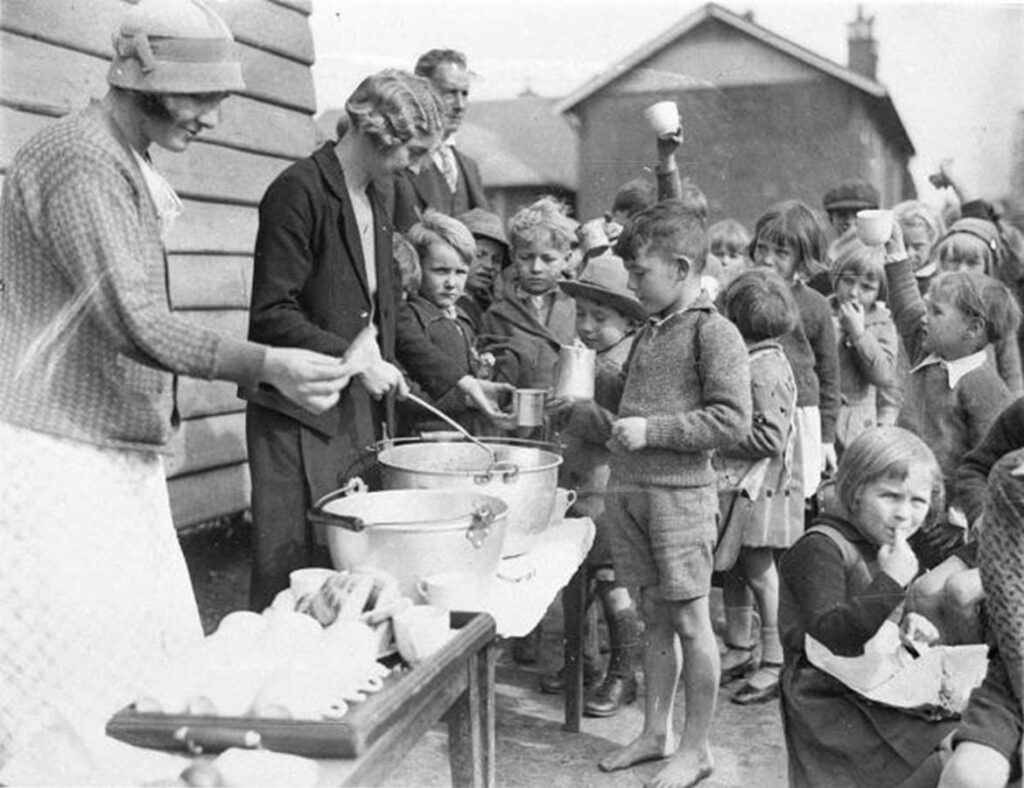
The Great Depression taught Americans many things, but one lesson really stands out, not in the numbers or charts, but in the stories that passed from grandparents to grandchildren around dinner tables and porches. It’s the story of people who had very little, and yet gave anyway—of soup kitchens that stretched down whole city blocks, of neighbors who split their last sack of potatoes, of barn raisings and coat-mendings, of pride swallowed for the sake of community, and dignity somehow still maintained.
They called it mutual aid. Not charity, not welfare, but something older, something deeply rooted in the understanding that survival, in hard times, is a shared endeavor. During those bleak years, when the bottom fell out of the economy and jobs evaporated like morning fog, people leaned on one another—not because it was idealistic or fashionable, but because there was no other choice.
But here we are, nearly a century later, and the ground beneath us is trembling again. Income inequality yawns wider by the year. Automation and artificial intelligence threaten vast swaths of employment. The safety nets—those government programs stitched together after the Great Depression—are fraying or being “DOGEed”. And there’s a whisper now, growing louder in some corners, that another collapse may be coming. Whether you call it the next Great Depression or the Greater Depression, the question isn’t just economic—it’s moral, social, even spiritual.
Will we respond the way our great-grandparents did?
It’s not a rhetorical question. Because while the Depression of the 1930s produced breadlines and dust bowls, it also gave birth to unions, cooperatives, and neighbors who watched each other’s children while they went out looking for work. People understood then that hardship could be shared without being multiplied. Today, in an age of DoorDash and same-day shipping, of social media friendships and isolated nuclear households, we must ask ourselves if that instinct for mutual support has gone dormant—or worse, disappeared entirely.
We are, in many ways, less prepared for economic collapse now than we were then. Not materially—after all, most homes have refrigerators and cell phones, even in poor neighborhoods—but socially. The Depression-era communities were often tightly knit: immigrant neighborhoods, small towns, tenements and church groups where people knew one another by name. Today, it’s common to live in a building for years without learning your neighbor’s last name. We have virtual networks, yes, but too often they are poor substitutes for the kinds of relationships forged through face-to-face reliance and repeated small acts of kindness and care.
That’s not to say we’re incapable of solidarity. We’ve seen glimmers—during the early days of the COVID-19 pandemic, when mutual aid groups sprang up in cities across the country, delivering groceries and checking in on the elderly. We saw it after hurricanes and wildfires, when strangers offered shelter and supplies. But these moments feel episodic, reactive, and fleeting. They’re the exception, not the rule.
The truth is, we’ve been conditioned—by decades of consumerism, individualism, and a relentless emphasis on self-reliance—to think of need as weakness, and of help as a transaction. “Pull yourself up by your bootstraps” is a catchy slogan until your boots are on fire and your neighbor is the only one with a hose.
If another economic catastrophe arrives—and it seems more a matter of when than if—it may not announce itself in the same way as the last one. There may be no dramatic stock market crash, no Dust Bowl. It may come quietly, as a long erosion: of wages, of housing security, of trust in institutions. It may not feel like a single event but like a slow unraveling. Which makes it all the more important that we begin reweaving our social fabric now.
Mutual aid isn’t nostalgia. It’s not a quaint artifact of an earlier, simpler time. It’s a living idea—adaptable, practical, and deeply human. It means organizing ourselves so that when crisis hits, we don’t default to panic or hoarding or scapegoating, but to cooperation. It means remembering that we are interdependent, and always have been, even if modern life has done a good job of pretending otherwise.
We cannot outsource fortitude and determination. No amount of policy or platform will replace the basic, radical act of showing up for one another. The systems may fail us. The markets may plunge. But if we can find our way back to mutual aid—not as emergency response, but as a way of life—we might just weather the next storm with our humanity intact.
After all, it was never just the bread that got people through the Great Depression. It was the hands that broke it and passed it around.
Join us in making the world a better place – you’ll be glad that you did. Cheers friends.